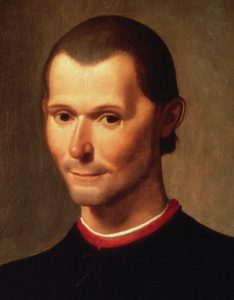Trial Of Machiavelli

The defendant intentionally misinterpreted our client's principles and mischaracterized them. They claim that "he is a teacher of evil," but they seem to incorporate evil with reality. We're certainly not all naive enough to think that politics is a pure game where everyone acts morally hundred percent of the time, it's dirty, it's ugly, and it attracts ambitious, power-hungry people. They're not always going to play by the rules. To this point, it is important to investigate how things are really done, which is what Machiavelli has attempted to do in his political writings. Theories about the true events of politics would allow one to make more efficient, more rational decisions as they are grounded in fact and not what ought to be. Promoting rational actions is not a sterile condonation of evil as obviously implied by the defense. I claim that pursuing an idealistic view of politics is in effect unethical because you would set people up for failure, so encouraging others of malicious intent to prosper so morality does not pressure them. Machiavelli does not condone evil and immoral acts, in fact, he urges the Prince to pursue ‘a righteous path’ as he wants his work to be understood as a text that teaches the Prince to follow virtues that would bring security and stability to the state and honor to himself (Viroli xxxi). What Machiavelli is trying to say that is, maintaining stability and security in the state should be the main concern of any leader even if she/he has to dirty their hands, for example, in the case of Orco. He was put in power over Romagna by Cesare Borgia to control the lawlessness that was prevalent, Orco was very brutish in his ways which made the citizens hate him but Borgia then has him arrested and executed making him look like a savior for the people What Borgia did is considered to be immoral, unjust, and cruel but what he did made the state stable. But this does not mean that we should just kill the opposition, it will be considered no virtu at all, like what Oliverotto da Fermo did - killing his political rivals at a dinner party, there is no virtue. Being cruel by itself is not virtu “It certainly cannot be called a virtu to kill one’s fellow citizens, betray allies, to be without faith, without pity, without religion; a man may get power by these means, but not glory.” (The Prince 31). Machiavelli sure does talk about using cruelty but also gives a very precise distinction between the use of well committed and bad committed cruelties. “Those cruelties are well used (if it is permitted to speak well of evil) that are carried out in a single stroke, done out of protecting oneself, and then are not continued but are converted into the greatest possible benefits for the subjects”, like what Borgia did to maintain stability. But those cruelties are badly used that, although few at the outset, increase with the passing of time instead of disappearing. Those who follow the first method can remedy their standing, both with God and with men, as Agathocles did; the others cannot possibly maintain their positions” (The Prince 33, 34). Why is it Machiavelli, the playwright, and poet, who is shackled by the accusations of evil and cruelty, when all he does is record the actions of his contemporaries and the rulers of old?
Bibliography
Machiavelli Niccolò, et al. The Prince. Oxford University Press, 2008.
